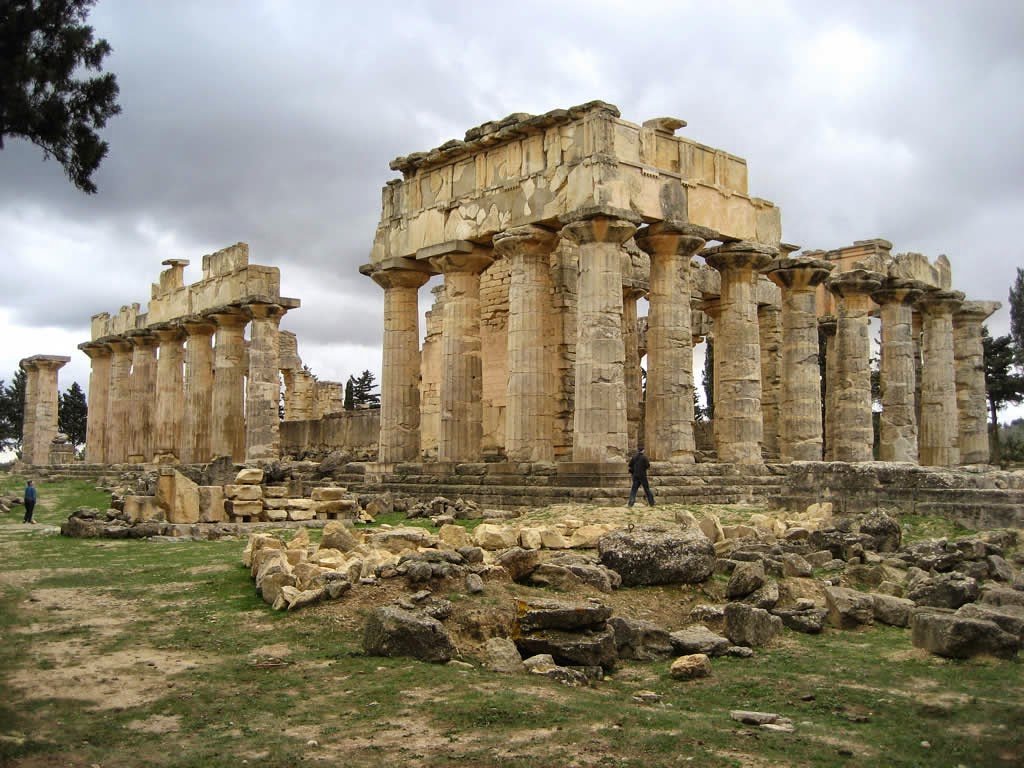Home » Events » Susan Kane Lectures on Threats to Libya’s Cultural Heritage
Susan Kane Lectures on Threats to Libya’s Cultural Heritage
Posted by vrcvanderbilt on Wednesday, November 11, 2015 in Events, HART, Lectures, VRC.
 Cyrene, Leptis Magna, Sabratha, Ghadames. Stretching from the Mediterranean Sea to the heart of the Sahara, Libya was a crossroads for many ancient cultures, including the Phoenicians, Greeks and Romans. Today Libya’s cultural heritage is facing significant threats and damage. Since the revolution of 2011, these dangers include not only unmanaged, unregulated development, but also increasing acts of civil disorder. Violence and vandalism are destroying archaeological sites across Libya—from ancient cities to prehistoric rock art. Susan Kane, Mildred C. Jay Professor of Art at Oberlin College, addresses these threats in her Archaeological Institute of America lecture, Libya’s Cultural Heritage Under Threat, held at the Nashville Parthenon on November 10 at 6:00 pm.
Cyrene, Leptis Magna, Sabratha, Ghadames. Stretching from the Mediterranean Sea to the heart of the Sahara, Libya was a crossroads for many ancient cultures, including the Phoenicians, Greeks and Romans. Today Libya’s cultural heritage is facing significant threats and damage. Since the revolution of 2011, these dangers include not only unmanaged, unregulated development, but also increasing acts of civil disorder. Violence and vandalism are destroying archaeological sites across Libya—from ancient cities to prehistoric rock art. Susan Kane, Mildred C. Jay Professor of Art at Oberlin College, addresses these threats in her Archaeological Institute of America lecture, Libya’s Cultural Heritage Under Threat, held at the Nashville Parthenon on November 10 at 6:00 pm.
“Professor Kane has excavated for many years at the Greek city of Cyrene in Libya, and her lecture was difficult to schedule because she has been called to Washington, DC to testify on just such threats to the antiquities of North Africa,” said Barbara Tsakirgis, associate professor of classics and art history.
“With two de facto governments claiming authority in the country, no constitution yet written, no clearly operating legal system, no defined property rights, no organized police force, many contesting militias, and rising religious extremism, more damage is being done to the country’s cultural heritage than was caused by the events of the 2011 revolution,” Kane said.
During Muammar Gaddafi’s 42-year regime, Libya’s cultural heritage from the pre-Arab period was “seen as a painful reminder of Libya’s colonial past and thus neglected for political reasons,” she pointed out. “Virtually all of Libya’s heritage sites still suffer from a lack of ongoing maintenance and inadequate security. In the context of the many challenges facing the new Libya, it is not surprising that cultural heritage struggles for recognition and protection from both governmental authorities and the population at large.”
Kane emphasizes the need for educational programs to promote public awareness and appreciation of the long history of Libyan culture, adding that the attitudes of the next generation must be developed. “Just after the revolution in 2011, there were hopeful signs as NGOs and local initiatives to support cultural heritage were being organized all over Libya, many with the support of the foreign missions working in the country,” Kane said. “But now Libya is engaged in a burgeoning civil war. The country is fighting for its very soul. It remains unclear what the future will hold for the cultural heritage of Libya.”
Kane’s research interests include Greek, Etruscan, and Roman sculpture and architecture, the study of ancient building technologies and building materials, and the use of archaeological sciences in the study or archaeology. She is the director of the Cyrenaica Archaeological Project in Cyrene, Libya and of the Sangro Valley Project in Abruzzo, Italy. Kane was the recipient of the 2005 Research and Exploration Award from the National Geographic Society and the 2013 Presidential Award from the Society of American Archaeology. She holds degrees from Bryn Mawr (MA and PhD) and Barnard College (BA).
Sponsors of Kane’s lecture are the Nashville Society of the Archaeological Institute of America, the Conservancy for the Parthenon and Centennial Park, and Vanderbilt’s Department of Classical Studies.
*The Temple of Zeus at Cyrene, Libya [Credit: David Stanley/WikiCommons]

©2024 Vanderbilt University ·
Site Development: University Web Communications